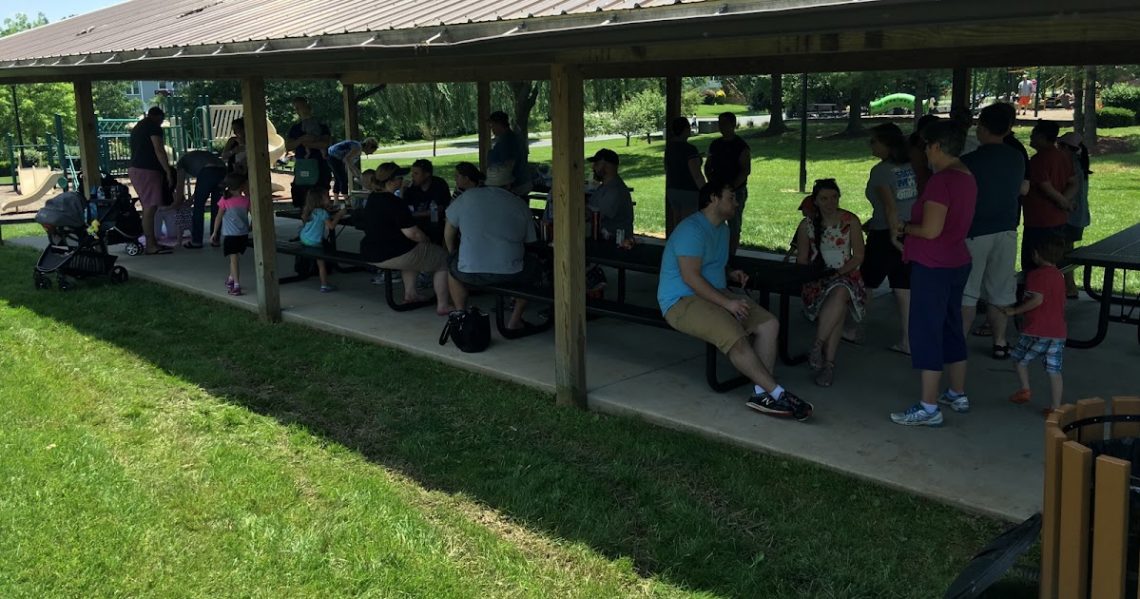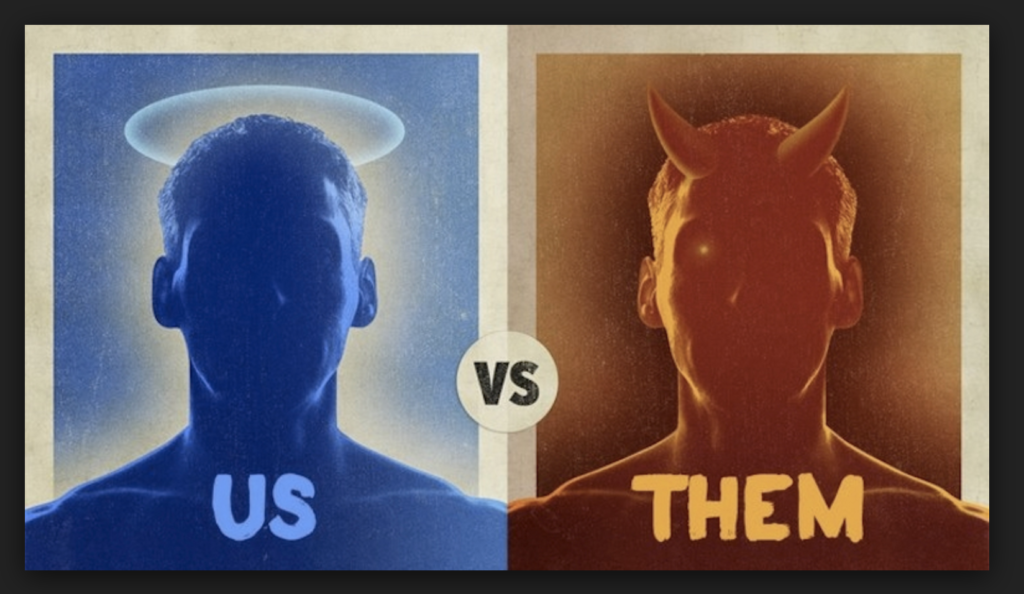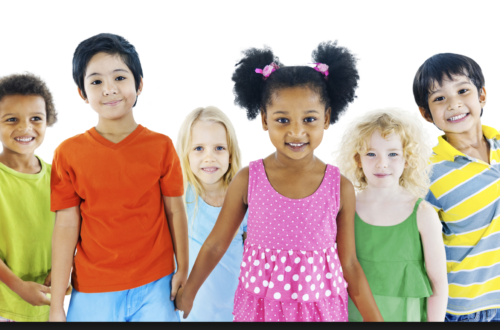
Why getting rid of racism is important for the survival of all humanity
Why getting rid of racism is important for the survival of all humanity
 People are the most cooperative species on Earth. We are all part of a big ecosystem that is all connected. We have built huge cities that are linked by a global network of roads, shipping lanes, and optical fibers that act as the brain. We’ve put tens of thousands of satellites in orbit around the Earth. Even things that seem simple, like a graphite pencil, are made by thousands of people from all over the world, as the great essay I-Pencil shows.
People are the most cooperative species on Earth. We are all part of a big ecosystem that is all connected. We have built huge cities that are linked by a global network of roads, shipping lanes, and optical fibers that act as the brain. We’ve put tens of thousands of satellites in orbit around the Earth. Even things that seem simple, like a graphite pencil, are made by thousands of people from all over the world, as the great essay I-Pencil shows.
Even though I look simple, I, Pencil, deserve your wonder and awe… If you can understand how miraculous I am, you can help save the freedom that people are so sad to be losing. I want to teach you a very important lesson. And I can teach this lesson better than a car, an airplane, or a mechanical dishwasher because, well, I look so simple.
Simple? Still, not a single person on this planet knows how to make me.
Still, we can be surprisingly intolerant of each other at times. If we’re being honest, we might all have a little bit of xenophobia, racism, sexism, or bigotry in us. We can choose to control and stop these behaviors for our own good and for the good of society as a whole.
You might also like:
- Could we live in a place where there are no rules?
- Is love just a high from chemicals?
- Can the moment you die be a happy one?
Most of what people think and do is influenced by both their genes and their environment. This is also true for xenophobia, which is fear of people who are different from us, and bigotry, which is intolerance of their ideas. In the amygdala area of the brain, there is a fear reflex that is set off by meeting something new.
In the past, people had good reason to be afraid of other groups. They could be violent, steal our resources, or bring new diseases to which we are not used. On the other hand, we should trust people who look like us because they are more likely to be related to us. And when we helped these relatives, it was more likely that our genes would be passed on to the next generation. Even better, if the other person did the same good thing for us, we would be helped even more.
If we are surrounded by people who make fun of people who are different from them, it can also make us more suspicious or aggressive.
Aside from these genetic factors, our culture has a big impact on our thoughts and actions. This changes our human drives, either by tamping them down or making them stronger. This culture has a lot to do with whether we trust and accept someone or fear them and turn away from them.
Modern society encourages people to show respect and tolerance to people who don’t look like them, even if they are different from them in other ways. We teach these values to our children, and some religious and nonreligious spiritual leaders also talk about them in their sermons. That’s because they usually lead to a more peaceful society where everyone benefits.
This is what has made us such a good species for working together. But sometimes our cultures can be less progressive. What people say and do around us has an unconscious effect on how we think. This cultural context soaks into us like a sponge, and it slowly changes how we think and act. If we are surrounded by people who make fun of people who are different from them, it can also make us more suspicious or aggressive.
It makes us feel some deep-seated fear of people from other places. In fact, it stops the brain’s prefrontal cortex from building up the hard-learned responses that stop things from happening.
Even strong people who stand up to dictatorships usually have the same goals and rules as other people in a resistance movement.
Movements like Nazism have openly supported racism and hatred of other people. They encourage strong tribal loyalty to the “in-group” (one’s own group), while stigmatizing (and, in the case of Nazism, killing) others. A healthy sense of pride in one’s country can easily become an unhealthy sense of nationalism, in which we only identify with our own country and not with others.
Today, it looks like things are going in this direction. Leaders who lean toward nationalism are getting more and more attention around the world, from the US to Brazil to India. Nigel Farage and others in the UK tweeted about the 2020 coronavirus outbreak, saying, “It’s about time we all said it. This bad dream was caused by China. Period.”
When people and groups we trust say things like this, it has a big effect on our minds. It can even change the way we think about things we might think are purely logical. For example, being a member of a political party in the US is strongly linked to whether or not you think people cause climate change.
This is because we tend to agree on a topic to show that we are part of a group, just like football fans wear certain colors or get tattoos to show their tribal loyalty. Even strong people who stand up to dictatorships usually have the same goals and rules as other people in a resistance movement.
All of this tribalism can feel very real and normal, and in a way, it is. It wakes up the parts of our brain that were made to react in this way. Still, there are other natural feelings, like kindness and care for others, that can be pushed down in these situations.
This mix of nature and nurture, which shapes our attitudes and behaviors, is clear in many human traits, and figuring out how some of these traits work can help us see where we can make changes.
Think about how people in modern society tend to gain weight. Before the modern era, sugary and fatty foods were hard to find and very valuable. Now you can find them everywhere. A biological trait, like the desire for sweet or fatty foods, that was useful before modern times has become harmful and no longer useful.
Surely, our modern cultures can keep us from giving in to these natural urges when they are bad for us and for society as a whole. After all, the way we raise children, the police, and the prison system all work to stop people from being violent.
Modern cultures, at least in many places, make it worse for us to eat too much unhealthy food, instead of recognizing and protecting us from our natural tendency to do so. Because of this, over a quarter of the world’s population, or two billion people, are overweight or obese, and another two billion have some kind of micronutrient deficiency.
When we know how our “hard-wired” urges interact with a culture that doesn’t help, we can start to make positive changes. In the case of obesity, this could mean that junk food is marketed less and the ingredients in processed foods are changed. We can also change the way we act, for example by setting up new routines and eating habits that are better for us.
But what about racism and fear of other people? Can’t we just come up with the right solutions? That might depend on how big our problems are in the future. For example, climate change, pollution, and the loss of biodiversity may make people more bigoted and afraid of people from other places.
Michele Gelfand, a cultural psychologist, has shown that environmental shocks can make societies “tighter.” This means that people are more likely to stick with their “in-group.” People in these kinds of societies are more likely to vote for dictators and be rude to people from other places.
This has been seen in the past when the environment was threatened by things like a lack of resources and disease outbreaks. Most climate change scenarios show that these threats, especially extreme weather and lack of food, will only get worse. Same thing with the coronavirus pandemic. Many people hope that these kinds of outbreaks will make the world a better place, but they could do the exact opposite.
This increased loyalty to our local tribe is a defense mechanism that has helped other groups of people stick together and get through tough times. But it doesn’t help in a globalized world where environmental issues and the way our economies work affect all countries. As a response to global problems, becoming racist, xenophobic, and less willing to work with other countries will only make things worse for our own countries.
In 2001, the Millennium Ecosystem Assessment was started by the United Nations to take stock of global environmental trends and, most importantly, to look into how these trends might change in the future. One of the scenarios was called “order from strength.” It was about “a regionalized and fragmented world that is concerned with security and protection…Nations see looking out for their own interests as the best way to protect against economic insecurity, and the movement of goods, people, and information is strongly regulated and policed.”
Later versions of the scenario have been called “fortress world,” which is a dystopian vision of a world where order is kept by an authoritarian system of global apartheid, with elites living in safe enclaves and the majority living in poverty outside.
On a larger scale, the rich “developed” countries that are mostly to blame for climate change don’t do much to help the poorer countries.
People who weren’t lucky enough to be born in “our” tribe seem to lack empathy, not care about them, and be rude to them. Rich countries argue about how to stop the possible flood of migrants as a response to an environmental disaster they caused.
We can, thankfully, come up with plans to change these attitudes by using logic. We can emphasize good values, build trust and compassion, and make our group and the “other” less different.
Appreciating how we are linked to other people is an important first step. We all came from a common ancestor that looked like bacteria, and now we all share more than 99% of our DNA. Through social networks, our minds are closely connected, and the things we make are often the next step in a chain of innovations that depend on each other.
Innovation is a part of a big, interconnected creative project that doesn’t care about race or borders. In the face of overwhelming evidence from biology, psychology, and neuroscience, you can even wonder if we really are separate people or if our sense of individuality is just an illusion (as I argue in my book The Self Delusion).
We came to think of ourselves as separate people because it helped us survive (such as memory formation and an ability to track complex social interactions). But if we are too self-centered, it can stop us from working together to solve problems.
Practice is also important because it literally rewires our brains, strengthening the neural networks that lead to compassionate behavior. Outdoor activities with other people have been shown to make us feel more connected to them, but those in lockdown aren’t allowed to do them right now. In a similar way, meditation techniques change the neural networks in the brain and make us feel less alone, which makes us more compassionate toward others. Even computer games and books can be made to help people understand each other better.
Lastly, we need open and honest conversations about environmental change and how it affects people now and in the future. This is especially important when it comes to how our attitudes and values can affect the lives and livelihoods of others. We need a public conversation about why people move because of climate change and how we should respond as a society. This will help us avoid having a knee-jerk reaction of devaluing others.
Let’s stop this moral time bomb from going off and shame those who keep the flames of bigotry going. Instead, we can open ourselves up to a wider sense of connection, which will give us the power to work together with our other human kin.
We can change our cultures and rewire our brains so that racism and xenophobia almost go away. In fact, we need to do just that if we want to work together across borders to solve the global problems of the 21st century.
Download the hobbytwin app and tell a friend for instant hobby matching:
For iPhone/iPad&iPod:









